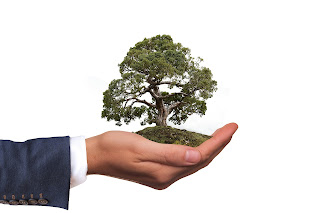As our planet experiences the undeniable effects of climate change, we must take proactive steps to mitigate its impact on our environment and our lives. One significant consequence is the intensification of summer heat, making it more crucial than ever to adopt environmental practices that contribute to cooler summers. In this article, we will explore practical actions individuals can take to help reduce summer temperatures while promoting sustainable living and a healthier planet.
Planting Trees and Green Spaces
One of the most effective ways to combat rising temperatures is by planting trees and creating green spaces in urban areas. Trees provide shade, which reduces heat absorption and cools the air through a process called evapotranspiration. By creating a canopy of trees, we can protect our neighborhoods from the scorching sun and lower the overall temperature in cities.
Implementing Sustainable Landscaping
Opt for sustainable landscaping practices to decrease heat absorption around your home. Choose native plants that are adapted to your region's climate, as they require less water and maintenance. Additionally, consider using porous materials like gravel or permeable pavers for pathways and driveways, allowing rainwater to infiltrate the ground instead of contributing to surface runoff.
Installing Energy-Efficient Cooling Systems
Traditional air conditioning systems are energy-intensive and contribute to greenhouse gas emissions. Consider installing energy-efficient cooling alternatives, such as evaporative coolers or heat pumps. These systems use less electricity and have a lower environmental impact, helping to reduce overall energy consumption.
Embracing Sustainable Transportation
The burning of fossil fuels for transportation is a significant source of greenhouse gas emissions, contributing to global warming. Opt for sustainable transportation methods such as walking, cycling, carpooling, or using public transportation. By reducing your carbon footprint, you can help combat rising temperatures and improve air quality.
Conserving Water
Conserving water not only helps the environment but also contributes to cooling efforts. Engage in water-saving practices like fixing leaks promptly, using a broom instead of a hose to clean driveways, and watering plants during cooler times of the day to minimize evaporation. Conserved water resources can then be utilized for green spaces and urban cooling initiatives.
Promoting Energy Efficiency at Home
Implement energy-saving practices in your home to reduce the demand for electricity, which often comes from fossil fuel power plants. Use energy-efficient appliances, LED lighting, and consider installing solar panels to harness renewable energy. Lowering your energy consumption will help mitigate the urban heat island effect, where cities retain heat more than surrounding rural areas.
Educating and Engaging the Community
Spread awareness about the importance of cooler summers and sustainable practices within your community. Engage in local environmental initiatives, advocate for green policies, and participate in neighborhood tree planting events. Collective efforts can create a more significant impact on cooling our surroundings and fostering a sustainable future.
Overall
Cooler summers are within our reach if we all commit to adopting eco-friendly practices that prioritize environmental health. By planting trees, embracing sustainable landscaping, utilizing energy-efficient cooling systems, choosing sustainable transportation, conserving water, promoting energy efficiency at home, and educating our communities, we can contribute to a cooler and more sustainable future. Let us embrace these environmentally conscious habits, not only for ourselves but for the generations to come, fostering a healthier planet for all.









No comments:
Post a Comment